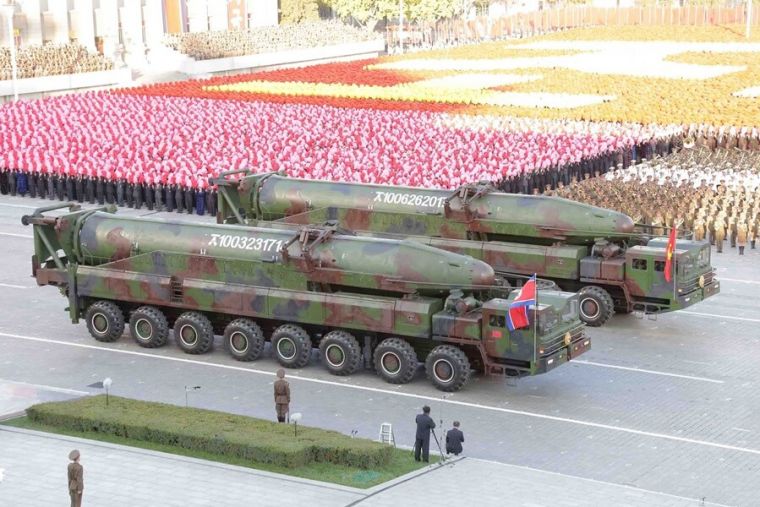Pentagon admits: North Korea now capable of launching nuclear missiles aimed at US

The US government has acknowledged North Korea's capability to launch long-range nuclear missiles that could reach the United States, but stressed that the Pentagon is adequately prepared for such a possibility.
Admiral Bill Gortney, head of the US Northern Command and the North American Aerospace Defense Command, said he agreed with US intelligence assessments that North Korea possesses nuclear weapons, as well as the capability to miniaturise them and put them on rockets that could reach the United States, according to Reuters.
"We assess that they have the capability to reach the homeland with a nuclear weapon from a rocket," Gortney told an event last week hosted by the Atlantic Council think tank.
According to him, it was very difficult to predict the behavior of North Korean leader Kim Jong-un. Nevertheless, the US military is prepared to respond if he were to use a nuclear weapon against the homeland, the admiral said.
"We're ready for [Kim], and we're ready 24 hours a day if he should be dumb enough to shoot something at us,'' said Gortney.
"I'm pretty confident that we're going to knock down the numbers that are going to be shot,'' he added.
North Korea's space agency said last month Pyongyang was building a new satellite and readying it for launch, "with any use of a long-range rocket," suggesting that the secretive state has made advances in developing a ballistic missile, said the Guardian.
Pyongyang claimed that its rocket launches are part of a legitimate space programme aimed at putting satellites into orbit. In the past it has also conducted missile tests in defiance of international warnings and sanctions.
Last March, the US Missile Defense Agency reportedly said North Korea could achieve the capability to launch an intercontinental ballistic missile within this year.
On Wednesday, Gortney disclosed that the US military was investing to modernise its current missile defence system, add new sensors and radars to better identify potential missile launches, and drive down the cost of defending against such attacks.
He warned that the failure of the US Congress to pass a budget for fiscal year 2016, or a resumption of mandatory budget cuts, could jeopardise the funding needed for such efforts.











